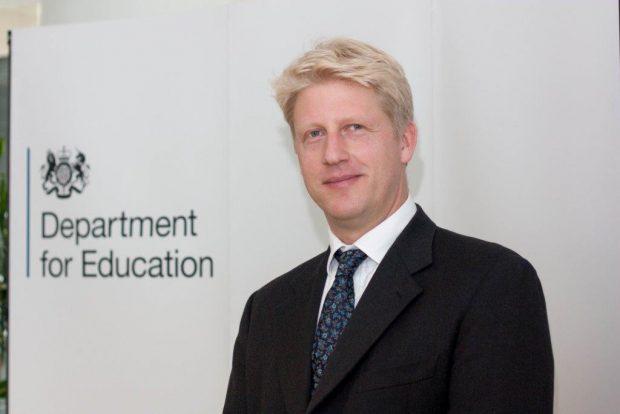Jo Johnson calls for free speech to be protected on campus

Universities Minister states ambition for free speech at university.
Universities Minister Jo Johnson has today (19 October) called on the new Office for Students (OfS) to champion free speech in UK universities, as part of a newly launched consultation.
The consultation has been launched primarily to help establish how the OfS, the new regulator for English higher education, will undertake its main functions – ensuring teaching standards continue to rise so all students receive a high-quality education
As part of the consultation the Universities Minister has asked the OfS to focus on ensuring institutions recognise the importance of freedom of speech and the role it plays in ensuring open debate. The aim is to ensure students are exposed to a wide range of issues and ideas in a safe environment without fear of censorship, rebuke or reprisal.
Earlier in the year the Government extended the statutory duty to secure free speech so that it will apply to all providers of higher education registered with the new Office for Students in the Higher Education and Research Act (HERA). The Office for Students will be able to hold providers to account to ensure that lawful freedom of speech is upheld by their staff and student unions and student societies.
Universities Minister Jo Johnson said:
Free speech is one of the foundations on which our higher education tradition is built. It goes to the heart of our democratic values and is a principle I know universities hold dear.
I know there is good practice out there, and am proud that some of our university leaders and academics have publicly defended free speech. But there are still examples of censorship where groups have sought to stifle those who do not agree with them.
This is why I want the OfS to work with universities to encourage a culture of openness and debate and ensure that those with different backgrounds or perspectives can flourish in a higher education environment.
The consultation is on the ‘technical details’ of how the OfS will operate. This includes looking at:
- Compulsory participation in the Teaching Excellence Framework (TEF) for higher education providers with over 500 students;
- Publication and justification of high salaries for senior staff;
- Transparency on how students can transfer between courses and empowerment of students through clearer student contracts; and
- The outcome of the consultation will form part of the OfS’ ‘Regulatory Framework’ which will come into force for the academic year 2019 / 20.
Chair of the Office for Students, Sir Michael Barber said:
This consultation document sets out a framework for a new era in higher education. The Office for Students will be a modern regulator which consistently puts the interests of students – short, medium and long-term – first. It sets out a bold agenda and highlights the importance from a student perspective of fair access, excellent teaching, progression into worthwhile jobs and value for money.
The success of our universities has never been more important to the future of our country. The proposals in this consultation document will enable our universities to contribute to the cultural and economic growth of cities, regions and the whole country and to continue to thrive on the global stage.
Ensuring freedom of speech and learning how to disagree with diverse opinions and differing views of the world is a fundamental aspect of learning at university. The OfS will promote it vigorously.
The OfS, which was established through the HERA, will be officially launched on 1 April 2018 and has been created to allow more choice for students and more competition in the interest of students.
It has been established as a single regulator to replace the Higher Education Funding Council for England (HEFCE) and the Office for fair Access (OFFA).
Ministers have appointed Sir Michael Barber as the Chair of the OfS and Nicola Dandridge as its Chief Executive.











Responses